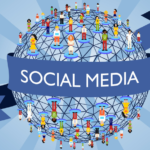The Internet puts resourcefulness and critical thinking at the forefront. It also democratizes knowledge, giving everyone access to the same information.
Before the century is out neurosurgeons, nano-technologists and roboticists predict a human brain/cloud interface (B/CI) will link your neurons to vast cloud-computing networks in real time. It’s the Vulcan mind meld for humans.
Accessibility
Many people with disabilities use the Internet, and web accessibility is essential for them to get the information, products, and services they need. For example, they can access government resources, shop online, and stay informed on current events. This means that it is important for designers to ensure that their websites are accessible to everyone.
The Internet is also a great resource for learning and entertainment. People can learn new skills and expand their knowledge, find friends, and enjoy a variety of entertainment activities through podcasts, e-books, videos, streaming movies, and gaming. They can even get help from a tutor or mentor. This is a major shift from the passive role that most people were in in the past when information was conveyed through conventional media.
While there are some limitations to the accessibility of the Internet, the potential for future advances in technology and accessibility is exciting. For example, researchers are working on a system that allows users to connect their brain cells to vast cloud-computing networks in real time. This could make it possible to search the Internet just by thinking about a topic or question. This type of cognitive offloading could be revolutionary, making the Internet accessible to all. It may also eliminate the need for human intermediaries, which could speed up communication and reduce costs.
Privacy
In an era where more and more information can be put out into the public, privacy is becoming a major concern. It is important to know what privacy means, how it can be abused, and how you can protect yourself.
Privacy is a complex concept, and it can mean different things to different people. It can be a state of being, a legal right, or a social value. It is also a topic that is approached differently in different countries and cultures. A common understanding of privacy is that it is a right to not have one’s personal information revealed to others without their consent. This can include one’s identity, thoughts, and feelings. Many nations and states have laws enforcing this right. In addition, a growing number of businesses are requiring their consumers to give consent before their data can be used. However, some people may not be aware that their actions can still be tracked by marketers and other parties.
Anonymity
Many people use the internet to communicate with other users anonymously. This can be done for a variety of reasons. For example, some people may be concerned about retaliation or harassment. Others may want to protect their identity when speaking about sensitive topics such as mental illness, addiction, or self-harm. In these cases, anonymity can be an effective tool for protecting personal information.
There are also several other benefits of anonymity. For example, it can prevent physical retaliation for remarks and allow people to discuss taboo subjects without fear of embarrassment or loss of status. In addition, anonymous communication can be useful when revealing facts that could put someone in financial or legal danger (e.g. illegal activities, unpopular or outlawed political views). In these situations, anonymity can help to protect a person’s reputation and livelihood.
Anonymity can also be used to protect a person’s privacy by hiding their location or device information. This can be achieved by using a virtual private network, using an anonymising website, or by using end-to-end encryption to protect messages. Anonymity can also be used to hide the true origin of a piece of information, such as by using a fake email address or creating a false online profile. These techniques can be used for legitimate purposes or to commit fraud or abuse.
Security
The Internet makes it possible to communicate across large distances and share ideas about all kinds of topics. This can lead to new thinking about human-machine symbiosis, about the future of education and even the nature of texts and writing.
The emergence of the Internet also has had a radical impact on culture, making it easier and faster for anyone to spread a proposal or work of art. Although it has spawned a huge number of erroneous or unpopular ideas, the Internet has nurtured a culture that is more open to new ideas than any other, and it has brought the riches of culture much closer to people around the world.
The Internet has also helped to shift the balance of power from the hands of the state and big business to individuals. It has enabled people to explore their own thoughts about any subject, including socially unacceptable ones such as violent or sadistic fantasies. However, this freedom of expression can also attract unwanted attention from the media or law enforcement authorities. This has led to some worrying trends, such as the case of Gilberto Valle.

